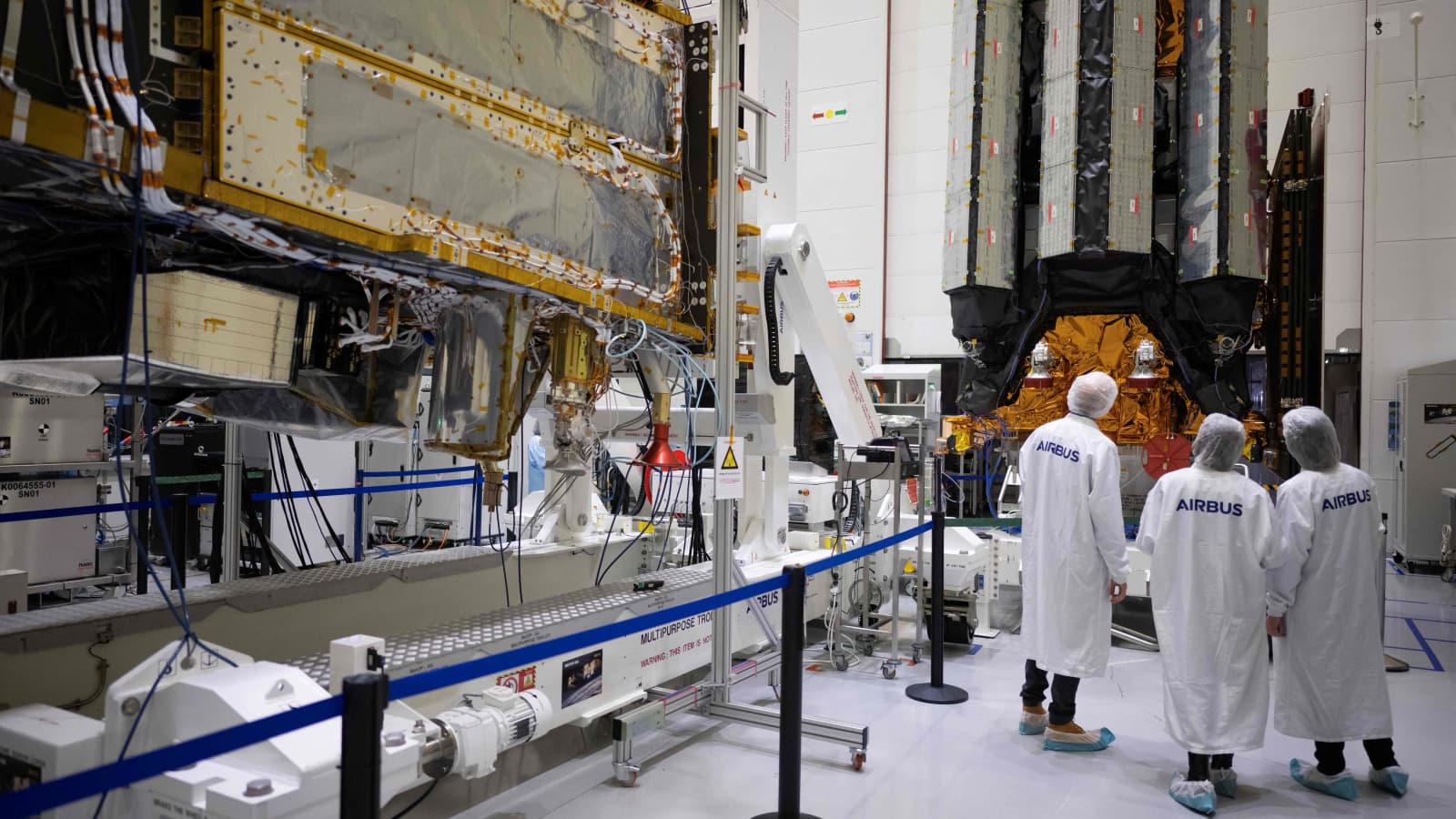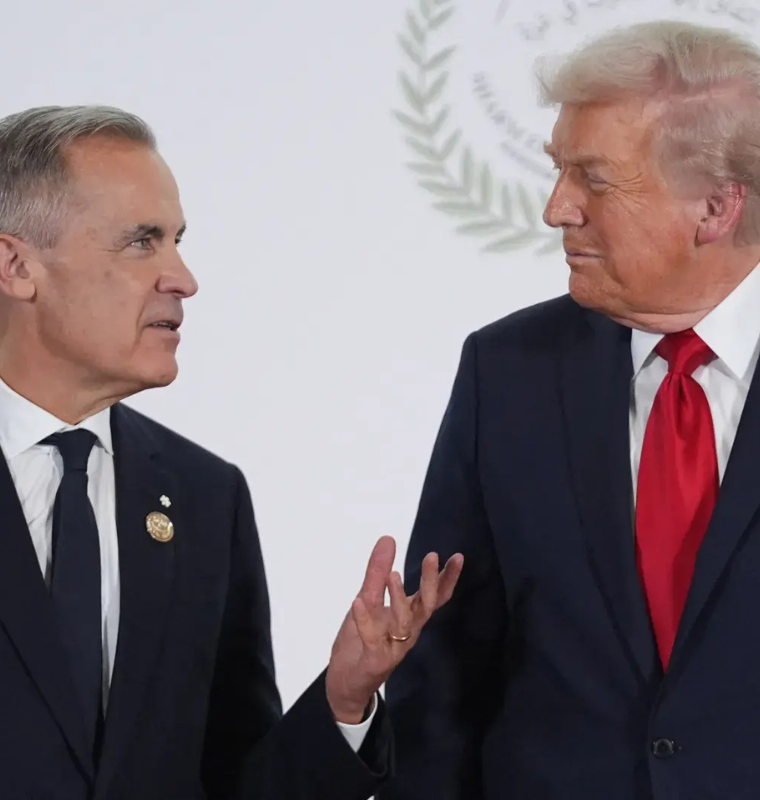Airbus, Thales, and Leonardo Unite to Create a European Space Powerhouse Aimed at Challenging Starlink
Airbus, Thales, and Leonardo Unite to Create a European Space Powerhouse Aimed at Challenging Starlink
By
Junia Wells
Last updated:
October 27, 2025
First Published:
October 27, 2025

Europe’s ambition to reclaim leadership in the rapidly expanding space communications sector is taking shape. Aerospace giants Airbus, Thales, and Leonardo have announced plans to merge their satellite and space operations into a new joint venture that could officially launch operations by 2027, pending regulatory approval. The move marks one of the most significant industrial alliances in Europe’s aerospace history — and a direct challenge to Elon Musk’s Starlink.
The new company, which has not yet been named, will focus on developing next-generation satellite infrastructure, space-based communications, and integrated digital services. It aims to become a “unified and resilient European space player” capable of competing on a global scale, with a strong emphasis on supporting sovereign national space programs and expanding into export markets.
Structure of the Deal
Under the terms of the agreement, Airbus will hold a 35% stake, making it the majority shareholder, while Thales and Leonardo will each own 32.5%. The merger will bring together complementary divisions, combining Airbus’s Space Systems and Space Digital units with Leonardo’s entire Space division, which includes its shares in Telespazio and Thales Alenia Space.
Thales will contribute its existing stake in Thales Alenia Space and its Thales SESO operations. Collectively, the new enterprise is expected to employ 25,000 professionals across Europe and generate mid-triple-digit millions of euros in annual operating synergies within five years of completion.
Executives from the three companies hailed the merger as a “pivotal milestone for Europe’s space industry,” emphasizing that it will “build a stronger, more competitive European presence in an increasingly crowded and strategic global space market.”
Market Reaction and Industry Impact
The market welcomed the announcement. The STOXX Europe Aerospace & Defense Index rose 0.9% following the news, reflecting investor optimism. Leonardo’s shares climbed 1.8%, Thales gained 0.6%, and Airbus added 0.2%. Analysts described the move as a long-awaited step toward consolidation in a sector that has long been fragmented across national lines.
David Barker, investment manager at GAM’s European Equity team, called the merger “the first tangible evidence of Europe addressing its declining technological sovereignty.” He noted that, until now, “Europe competed against itself — three smaller companies battling SpaceX’s dominance — but this alliance changes the landscape.”
Why Europe Needs Its Own Space Network
Elon Musk’s Starlink, operated by SpaceX, currently dominates the global satellite broadband market, with over 10,000 satellites launched as of this month and tens of thousands more planned. Its constellation covers nearly every corner of Europe, providing broadband connectivity to remote and conflict-affected regions.
However, Starlink’s strategic role — particularly in Ukraine’s war effort since Russia’s 2022 invasion — has raised concerns among European leaders about overreliance on a U.S. private company for critical communications infrastructure. Several European policymakers, including French President Emmanuel Macron, have voiced the need for a “sovereign European satellite network” to ensure secure and independent space capabilities.
In July, Italian lawmakers even warned against involving SpaceX in the country’s national satellite upgrades, underscoring growing political pressure for homegrown alternatives.
Strategic Vision and Future Outlook
The Airbus-Thales-Leonardo merger aims to fill this gap. While the venture will not develop space launchers — focusing instead on satellite manufacturing, communications infrastructure, and downstream services — it will play a central role in Europe’s emerging space strategy.
The new company’s leadership stated that its goal is to “serve as Europe’s trusted space partner,” capable of delivering both government and commercial solutions across a variety of applications — from defense communications to global broadband access.
Michael Field, chief equity strategist at Morningstar, described the partnership as “another step in the right direction for Europe.” He noted, “For Airbus, Thales, and Leonardo, space currently represents a smaller portion of their overall business, but uniting their resources dramatically boosts their global competitiveness.”
The Road to 2027 and Beyond
If approved, the new space company could become operational by 2027, just as global competition in satellite internet and defense communications intensifies. Europe’s previous attempts at creating a unified satellite network — including Eutelsat’s 2023 merger with OneWeb — have struggled to match Starlink’s scale and speed of deployment.
Still, the new joint venture represents a far more ambitious consolidation. With three of Europe’s largest defense contractors combining their expertise, the continent may finally possess the critical mass to reassert itself in the global space economy.
As Airbus CEO Guillaume Faury noted in a statement, this alliance “is not merely about competing with Starlink — it’s about ensuring Europe’s place in the next era of space connectivity.”
With a workforce spanning multiple countries, billions in expected revenue, and government backing across the EU, Europe’s long-awaited space revolution may finally be underway.
Popular articles
Subscribe to unlock premium content
Why Urban Beekeeping Is Becoming a Multi-Million-Dollar Eco Trend

How Allbirds Turned Wool Sneakers Into a Global Sustainability Trend

The Economics of Renting Hypercars to Tourists in Monaco

Why Urban Beekeeping Is Becoming a Multi-Million-Dollar Eco Trend

How Allbirds Turned Wool Sneakers Into a Global Sustainability Trend

Why Urban Beekeeping Is Becoming a Multi-Million-Dollar Eco Trend









